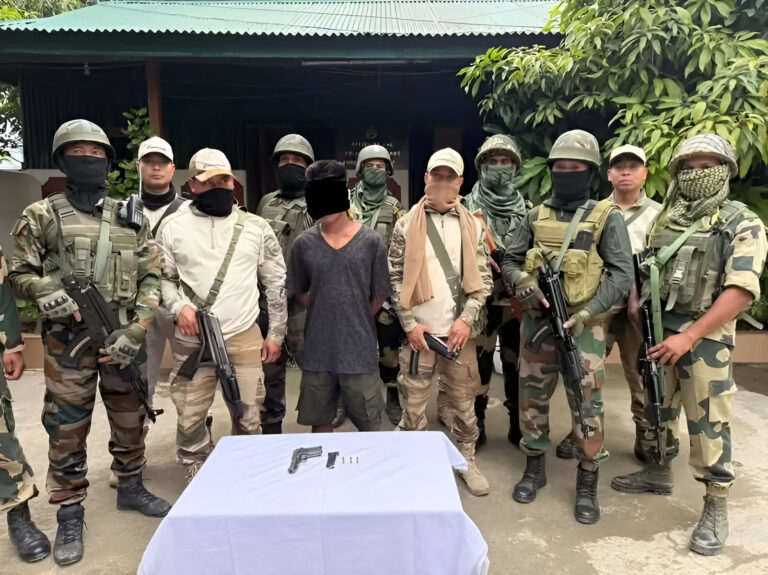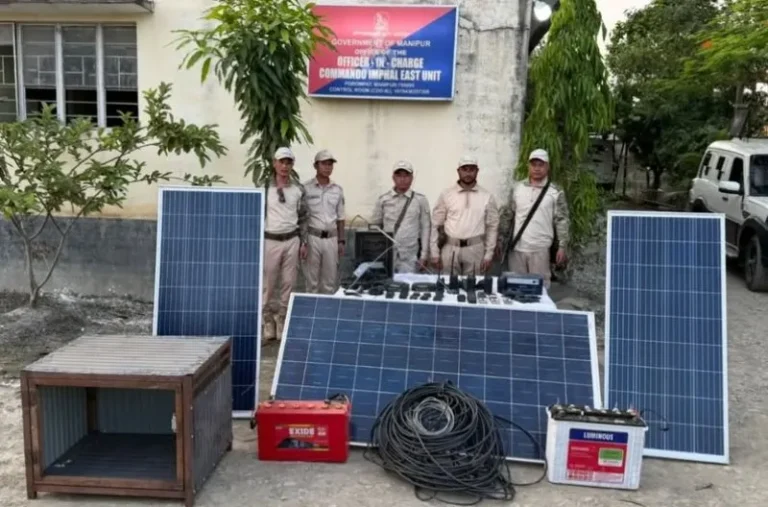16 Militants Killed in Manipur Over the Past Year: An Overview of Police Efforts
Summary
Over the past year, Manipur police, in joint operations with central security forces, have neutralized 16 militants and arrested 291, as reported during the state’s 133rd Raising Day celebration. The authorities also made significant progress in fighting insurgency and drug trafficking, registering 762 cases and destroying 651 acres of poppy fields. The police have implemented community outreach programs, promoting peace through events like marathons and blood donation camps.
A Closer Look: Police Operations and Insurgency in Manipur
Introduction to Manipur’s Struggle with Militancy
Manipur, a state nestled in the northeastern region of India, has been grappling with insurgency and militancy for decades. With its lush landscapes and rich cultural heritage, the state is often overshadowed by news of unrest and violence. This unrest is fueled by ethnic, political, and social tensions, which have led to the rise of several militant groups operating within the region.
However, in the past year, there has been a notable decline in militant activities. This progress can be attributed to the tireless efforts of the Manipur police, working in collaboration with central security forces. According to recent reports, 16 militants were killed in various operations over the last year, and this is just one piece of a larger strategy aimed at restoring peace and order in the state.
But how did the Manipur police achieve such results? Let’s dive deeper into their operations and understand the broader context.
How the Manipur Police Have Tackled Militancy
Joint Operations with Central Security Forces
Fighting insurgency in a state like Manipur isn’t a solo job. The Manipur police have partnered with central security forces in their operations. The synergy between local law enforcement and national forces has been instrumental in not just neutralizing militants but also apprehending a significant number of individuals associated with underground outfits.
In the past year, the police have arrested 291 militants from various insurgent groups. While these arrests have been crucial in weakening the operational capabilities of these groups, the larger goal remains to dismantle these networks and restore peace in the region.
The cooperation between state and central forces isn’t just limited to combating militants. Their efforts extend to intelligence gathering, which is vital in preempting potential attacks and preventing the rise of new threats.
Counter-Insurgency Successes
Militancy in Manipur is a complex issue. Numerous insurgent groups, driven by ethnic and political motivations, continue to disrupt the peace. Yet, the police, through their counter-insurgency operations, have managed to register 762 cases related to militant activities over the past year. These operations have not only led to the deaths of militants but have also weakened the logistical and operational infrastructure of these groups.
In addition to militant-related arrests, over 1,000 weapons were recovered, further hampering insurgent activities. Recovering such a significant cache of weapons speaks volumes about the scale of the threat that the police are dealing with. However, these operations are not without risks. For every operation that results in success, law enforcement faces life-threatening challenges, often operating in hostile terrains with little backup.
Impact of Drug Trafficking on Manipur’s Conflict
Insurgency in Manipur isn’t just a political or ethnic issue. It’s also intertwined with drug trafficking, an industry that has thrived in the region due to its proximity to the infamous “Golden Triangle.” Manipur’s insurgent groups are known to finance their activities through the illicit drug trade, particularly heroin and opium derived from poppy plantations.
Recognizing this, the Manipur police have taken aggressive action against the drug trade. Over the past year, they destroyed 651 acres of poppy plantations. By doing this, they have significantly disrupted the financial lifeline of militant groups. These efforts have also led to 97 cases being registered under the Narcotic Drugs and Psychotropic Substances Act (NDPS), with 109 individuals arrested for their involvement in drug trafficking.
The connection between militancy and drug trafficking is a vicious cycle that the Manipur police are determined to break. By cutting off the financial resources of insurgent groups, they aim to reduce their ability to recruit, arm, and carry out attacks.
Promoting Peace Through Community Outreach
It’s not all about guns and arrests. The Manipur police have recognized that fostering community relations is crucial in achieving long-term peace. In the past year, they’ve organized several community outreach programs, aimed at building trust and cooperation between law enforcement and the public.
One such initiative was a blood donation camp, held at the 1st Manipur Rifles Banquet Hall, where 28 police personnel participated. This event wasn’t just about saving lives through blood donations; it was about showing the community that the police are there to serve and protect in more ways than one.
In addition to health-related programs, the police have also organized events that promote physical fitness and peace. Mini-marathons were conducted in Bishnupur and Churachandpur districts, attracting hundreds of participants, including police personnel, members of the Central Armed Police Forces (CAPFs), the Army, Assam Rifles, and local youth. The theme of these events, “Run for Peace,” highlights the police’s commitment to unity and stability in Manipur.
By organizing such events, the police are not only improving their relationship with the community but also encouraging a culture of peace and non-violence. These initiatives are a reminder that while law enforcement’s role is often seen as one of enforcement and discipline, their involvement in the community plays an equally important role in preventing future conflicts.
Challenges Ahead: What Does the Future Hold?
Despite these successes, the road to peace in Manipur is still long and winding. Insurgent groups, while weakened, still pose a threat, and drug trafficking continues to be a major issue. Furthermore, the ethnic and political tensions that have plagued the region for decades remain unresolved.
The Manipur police, alongside central forces, will need to continue their multifaceted approach if they are to maintain peace in the region. This means not only continuing their counter-insurgency and anti-drug operations but also building stronger relationships with local communities. The trust of the people is vital in gathering intelligence, preventing future conflicts, and ensuring long-lasting peace.
Moreover, the state and central governments will need to address the root causes of militancy. Poverty, lack of education, and unemployment all contribute to the rise of insurgent groups. Addressing these issues through policy reform and community development programs will be key to reducing the appeal of militancy.
Conclusion
Manipur’s journey toward peace is far from over, but the progress made over the past year is a testament to the dedication and bravery of its police force. By neutralizing 16 militants, arresting hundreds more, and disrupting the financial networks of insurgent groups, the police have laid the groundwork for a more peaceful future. However, the battle isn’t just fought with weapons; it’s also fought with trust, community engagement, and a shared vision for peace.
As Manipur continues its fight against militancy, the combined efforts of law enforcement, government, and the people will be crucial in ensuring that the peace achieved is both meaningful and lasting.
FAQs
- How many militants were neutralized by the Manipur police in the past year? Sixteen militants were killed in joint operations with central security forces over the past year.
- What role does drug trafficking play in the insurgency in Manipur? Drug trafficking, particularly the cultivation and sale of poppy, finances insurgent groups, making it a key issue in the conflict.
- What community outreach programs have the Manipur police organized? The police have organized events such as blood donation camps and mini-marathons to foster community relations and promote peace.
- How many weapons were recovered by the Manipur police during their operations? Over 1,000 weapons were recovered in various counter-insurgency operations over the past year.
- What are the future challenges for Manipur in achieving lasting peace? While progress has been made, the region still faces the challenges of insurgency, drug trafficking, and deep-rooted ethnic and political tensions.



